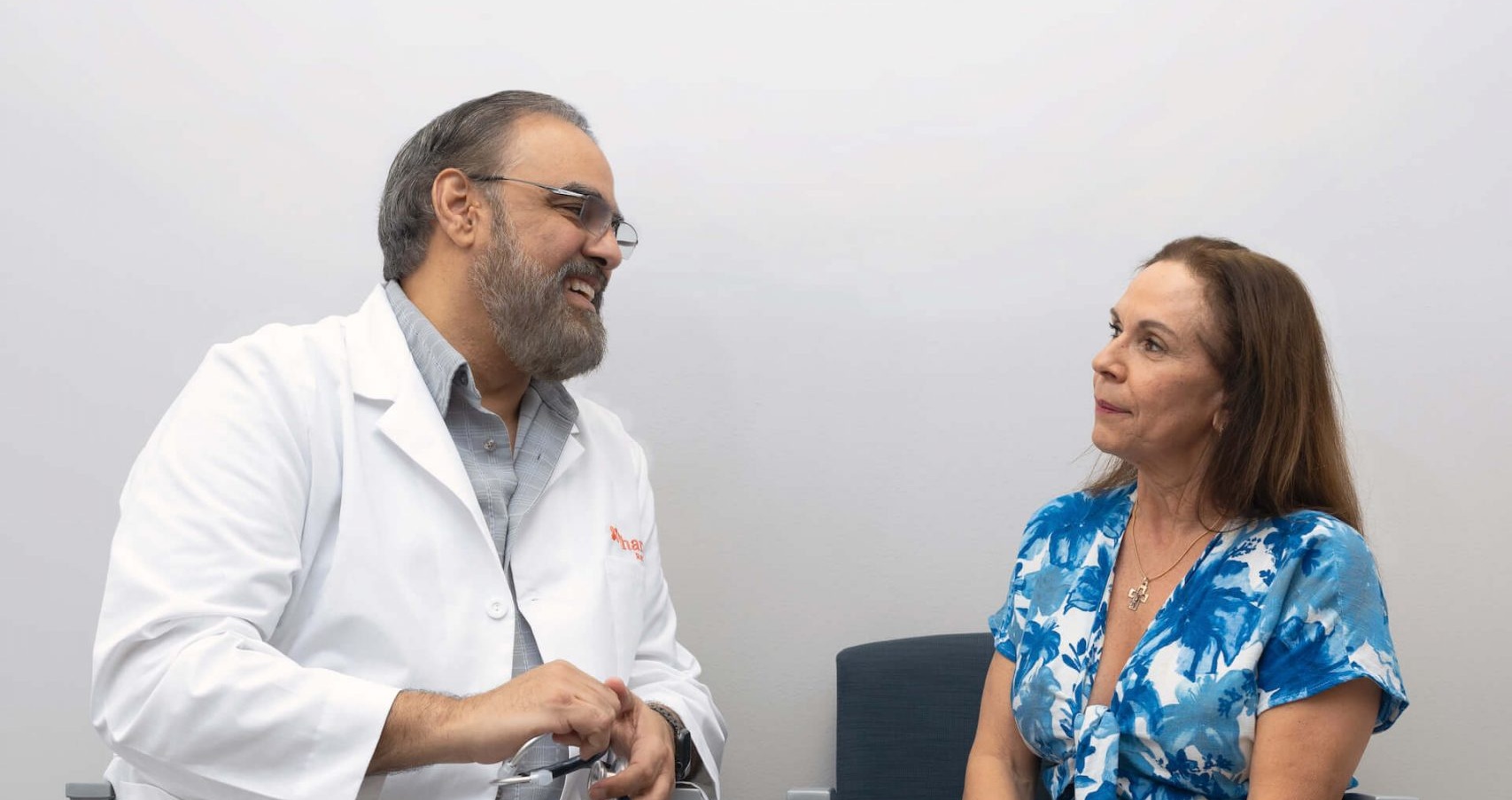Get To Know: Dr. Edgardo Rivera, Medical Director, Orlando
Growing up in Puerto Rico, Edgardo Rivera was a smart, curious, and inquisitive child, so much so that friends and family began to tell him “you should be a lawyer”. But his career and life experience would not steer him toward the courtroom. Instead, it led him to medicine.
After a lengthy career in emergency medicine, Dr. Rivera now leads the Orlando research center for Charter Research. The clinical trial facility, which also operates a site in The Villages, is at the forefront of innovative treatments that secure greater health and standards of care for the community.
Embracing Unexpected Opportunities
Dr. Rivera’s medical journey began shortly before his high school graduation. “I had already applied to business administration because I wanted to be a corporate lawyer,” he recalled. “Then at the last minute they had me do a psychometric evaluation with one of the school counselors.”
The evaluation, which was designed to determine personality traits, cognitive ability, and other personality characteristics, concluded that he would excel in a service industry, and one of them was medicine.
Indeed, embracing unexpected opportunities has defined Dr. Rivera’s career and positioned him well for his current role as Charter’s medical director in Orlando.
After completing his undergraduate studies in Puerto Rico and medical school in the Dominican Republic, Dr. Rivera began his residency in emergency medicine back in Puerto Rico. A chance encounter with a U.S. Air Force (USAF) recruiter would help write the next chapter in his professional story.
He joined the USAF under a medical sponsorship program. Upon completion of his residency in emergency medicine he was stationed at Andrews Air Force Base as an attending physician. He followed that with additional subspecialty training (fellowship) in emergency medical services (EMS) and disaster medicine in Michigan, again sponsored. This was also the very first sponsored fellowship in emergency medicine for the USAF. While in Michigan, Dr. Rivera completed a master’s in public health at the University of Michigan. After completing his military service with postings in Texas, Dr. Rivera moved to Central Florida in the late 1990s to work at Florida Hospital (now AdventHealth) where he was the Medical Director for the helicopter medical transport service.
Honing His Research Skills
But opportunity again came knocking with a chance to return to Michigan to join the faculty at Michigan State University as an associate professor and as assistant residency director, teaching resident physicians and medical students, and engaging in academic research.
Each stop in his career afforded Dr. Rivera new opportunities to hone his research skills.
“When you start your medical residency program, that’s part of the curriculum. You have to work on a research project in order to graduate. So, I have been exposed to that since then,” he said. “When I did my fellowship, that had a very strong focus on research. My fellowship director was also a big researcher and an editor of a journal. Then I did my master’s degree in public health at the University of Michigan. In the master’s program, you formally learn biostatistics, epidemiology, and proper research methodology.”
Over the years, Dr. Rivera has published 29 papers on various topics spanning emergency medicine, mass casualty response, systems performance, spinal injuries, cardiac arrest, and acute tachyarrhythmias. He also served on the editorial board of two prominent peer-reviewed national scientific journals, regularly reviewing research manuscripts submitted for publication.
Joining The Team
In 2008, Dr. Rivera returned to Central Florida, in part to be closer to his aging parents. He began working in emergency medicine locally.
“One day by chance I saw a posting, and it was for principal investigator with Charter, and you know, I said, ‘That is what I have wanted to do.’ So, it came at the right time,” he said. “I was not looking for a job; it just happened to be at the right time. I had matured in my career enough to be able to have that career change, and applied, and here I am.”
Dr. Rivera has served as Principal or Sub-Investigator on more than 40 clinical trials across all phases of research and in numerous therapeutic areas including Alzheimer’s disease, dementia with Lewy bodies, Parkinson’s disease, cervical dystonia, nonalcoholic steatohepatitis (NASH), lumbosacral radicular pain, diabetic peripheral neuropathic pain, osteoarthritis, and obesity. He is particularly experienced as principal investigator in clinical trials in Alzheimer’s disease.
A Fulfilling Experience
His experience at Charter also helped fulfill a desire for more intimate connection with his patients, he said. “In emergency medicine, you can’t spend more time than you need to solve the patient’s problem and move to the next one that is waiting for you,” he said. “In disaster medicine, it’s the same thing and just as fast paced. You have to solve the problem in front of you and move on to the next problem.”
Dr. Rivera admits that after nearly four decades in emergency and disaster medicine, he was not enjoying his work as much as he would have liked.
“Now I talk to my patients and that makes a difference, to get to know them better, to console them when they have any problems,” he said. “So, it’s been fantastic.”
Indeed, the clinical research work requires Dr. Rivera to explain to his patients’ satisfaction everything that’s happening before and during study participation.
“And not only them, but to family members, as well,” he said. “A lot of times the family members have much more curiosity and many more questions than the actual patients. So that interaction is fantastic.”
